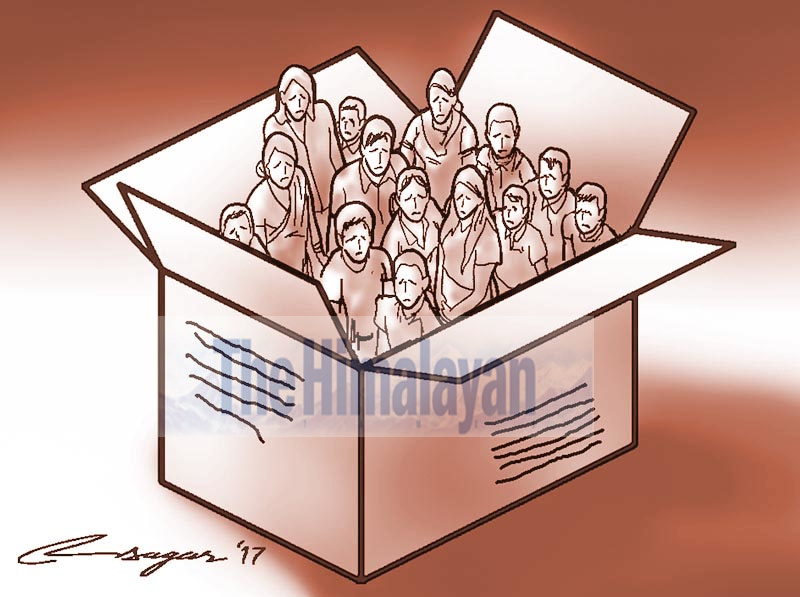Human trafficking continues unabated amidst COVID pandemic
KATHMANDU, SEPTEMBER 5
Women and girls continue to be trafficked into various countries, mainly India, despite global pandemic of COVID-19. They tend to be more susceptible to trafficking during adverse situations created by the coronavirus outbreak.
Human traffickers could target women rendered jobless during pandemic, which is also likely to put their children at risk. According to a press statement released by the Ministry of Women, Children and Senior Citizens to mark the 14th National Day Against Human Trafficking today, as many as 21 women trafficked into India via the land route amid the pandemic were recently rescued and brought home. It showed that COVID-19 was no bar to traffickers to lure women into other countries under the pretext of providing them decent jobs. The Day was celebrated under the theme of ‘End to Human Trafficking and Smuggling: A Destination to Well-cultured, Civilised Society and Social Transformation’.
“Previously Nepali women and girls trafficked by organised crime syndicates used to end up in Indian cities.
It is now no more limited to the neighbouring country. The web of trafficking has spread across the Gulf, African and Latin American countries. Therefore, human trafficking is a global issue,” warned the statement.
“The government has imposed a ban on women to go for foreign employment in Gulf countries. Despite this, frequent rescue of women from these countries reflect the worsening situation of human trafficking,” it added. The government adopted restrictive measures to protect aspiring women migrant workers from forced labour and other forms of exploitation. However, various studies showed that the ban did not stop women from going to the Gulf countries. Rather they opted for illegal means to go to Gulf countries for employment.
Cases of human trafficking are often trivialised by linking them to other aspects such as migration for employment. Trafficking victims refuse to come forward with complaints for action against their perpetrators due to social stigma and government’s inability to crack down trafficking cases. Minister of Women, Children and Senior Citizens, Parbat Gurung underlined the need for national and international efforts to curb the crime of trafficking.
He said the government had recently established a women entrepreneurship facilitation centre in each local level to create employment opportunities for women and teenage girls, who are usually compelled to leave home communities in search of jobs.
“Existing laws and rules have also been amended to make them contemporary and stringent. We are committed to ending all forms of trafficking within the next three years,” he said.
According to a report of the National Human Rights Commission, it is estimated that around 35,000 persons, including 15,000 women and 5,00 girls were victims of human trafficking in 2018-19. It warned that the crime of human trafficking has yet to get due attention of the concerned authorities.
The government’s effort and investment have fallen short in combating the crime.
A version of this article appears in e-paper on September 6, 2020, of The Himalayan Times.






